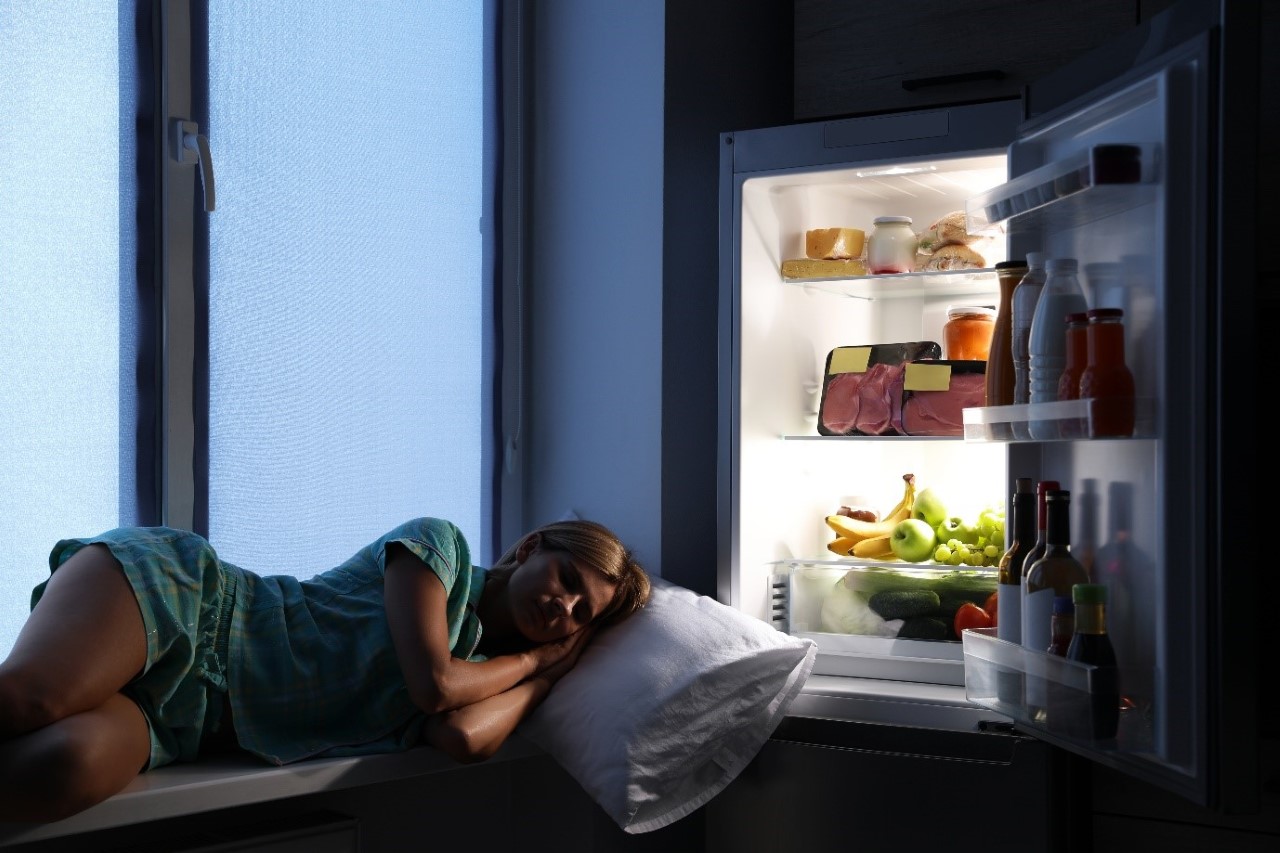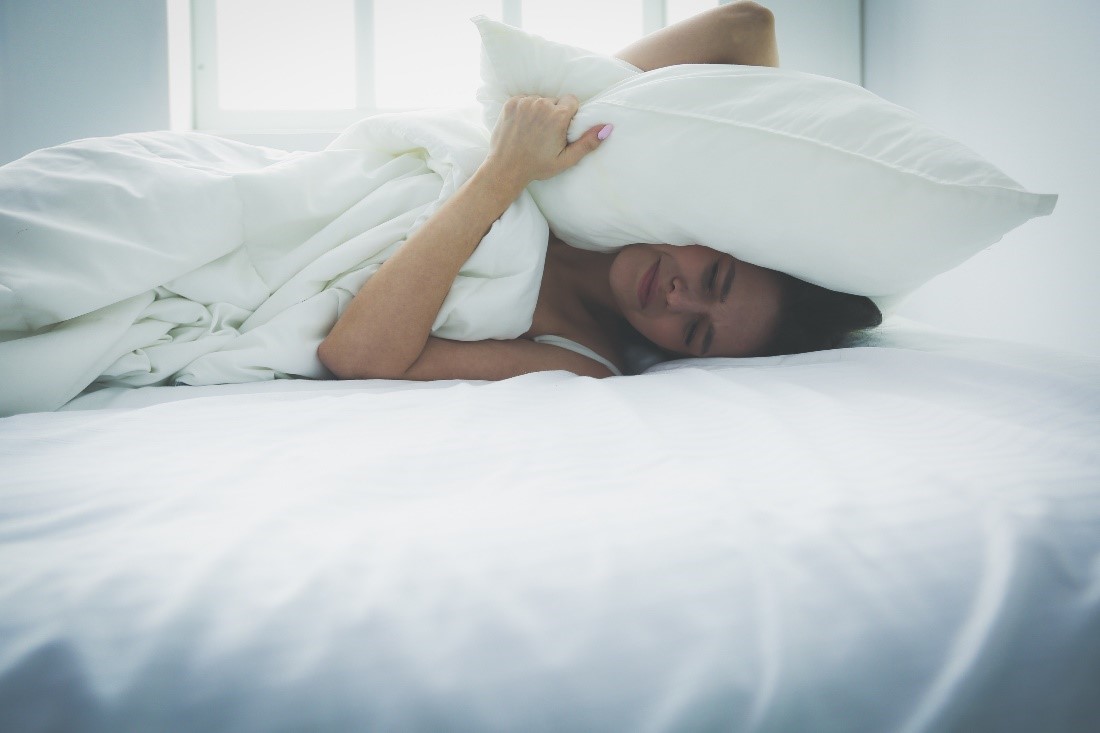Sleepy's use independent contractors for delivery services to our customers and during this time we want to support these small business owners and our customers to ensure safety for all. This may mean some interruptions to our normal delivery service and Free Old Mattress Removal which will be based on advice obtained from the Australian Government and the precautionary measures our delivery contractors determine necessary. If you are purchasing in one of our Sleepy’s showrooms or online, our staff will confirm the current status and keep you updated until your order has been delivered. If you are unable to accept the delivery due to illness or quarantine, you can arrange an alternative delivery time with the store. We are committed to continuing Sleepy’s amazing customer experience from the start of your mattress selection through to post purchase, delivery and beyond.
Read More
The Connection Between Sleep and Weight
Read More
The Connection Between Sleep and Weight
June 17th, 2022
A routine of poor sleep can lead to a whole range of negative health effects from increased amounts of stress to heart issues and even weight gain. Similar to the Science of Falling Asleep, this article aims to explain the connection between sleep and how it effects body weight based on evidence that has already been uncovered about the subject.
Sleep and Weight Loss
Getting a regular amount of adequate sleep can be a massive benefit for any weight loss regiment. This is mainly due to decreases in your calorie intake and overall appetite, making it less likely for you to eat throughout the day. While you are asleep, the weight you do lose mainly comes from water loss and although you do burn fat cells, it is not a significant amount.
But you might be thinking, what if I go to bed hungry? While it is not recommended that you eat a meal at least 3 hours before bed, that doesn’t mean you will starve throughout the night or even wake up hungry. It has been proven that your metabolism actually slows by roughly 15% during sleep and reaches its lowest levels around waking time.
How Does Sleep Deprivation Affect Weight Loss?
Sleep loss can trigger increased levels of Ghrelin, the hunger hormone which drives us to eat and decreased levels of Leptin, the hormone that regulates hunger. The higher the level of this hormone imbalance, that harder it will be to lose weight and prevent further weight gain. People who don’t get enough sleep are also less likely to exercise and the fatigue caused by a pattern of insufficient sleep equals less motivation.
The longer the cycle continues, the more likely the chance of sleep disorders such as sleep apnea, of developing. It should be noted that people who work in shift work are at a higher risk of developing sleep-related weight issues.
Can a Lack of Sleep Lead to an Increased Risk of Obesity?
No longer are our weight loss efforts measured entirely by the amount of physical activity we engage in and what we eat. Sleep deprivation is the common instigator of chemical imbalances such as elevated cortisol levels, the stress hormone. The more stressed you are, and without regulation, the more likely it is you will increase your food intake. In fact, a study conducted by the NCBI discovered that adults with a restricted sleep duration have a greater tendency to select higher-calorie foods.
But in order to reverse the effects of sleep restriction, the quality of sleep is more important than the hours slept. Sleep deprived people at a higher risk of obesity have been observed to be sleeping only 5 hours or less per day and even this small amount was filled with interruptions. To keep up with this, people will generally take a nap in the afternoons to gain some catch up sleep. This is generally not recommended due to it increasing your lack of sleep in the evening and lowering your overall sleep quality.
Healthy Sleep Habits for Losing Weight
While people’s sleep requirements vary based on factors such as age, gender, lifestyle and even geographical position, these are some universal tips that can help everyone achieve a healthy night’s sleep.
Stick to a Sleep Schedule: By regulating your body’s internal clock and getting same number of hours per night, you can give your mind and body the time it deserves to recuperate.
Have a Pre-Sleep Routine: Reducing stress and any anxious feelings that might be lingering from the day can be the difference between a good night’s sleep and waking disruptions. Sleep deprived people can really benefit from swapping television for a book, or maybe giving meditation a go.
Try Some Sleep Remedies: There are some great remedies you can use that don’t require a prescription to help you fall asleep, for more on this, check out The Best Teas for a Good Sleep and How To Use Aromatherapy Oils for a Good Night’s Sleep.
Sleep in the Right Environment: Where you sleep is an integral part of healthy sleep medicine. Always make your room as dark as possible and reduce your exposure to artificial light such as the blue light from your phone or your bedside lamp at least 3 hours before your bedtime.
Check out the Sleepy’s Blog for some more informative articles to help you get the most out of your sleep.


